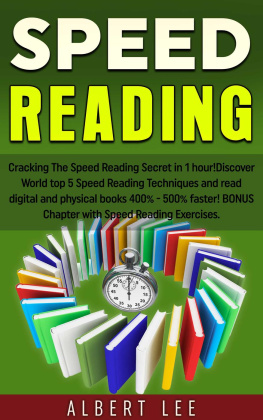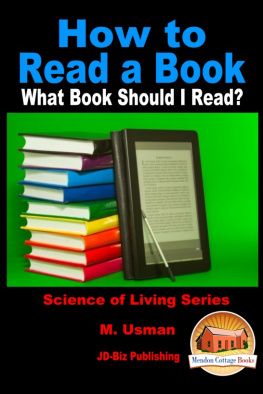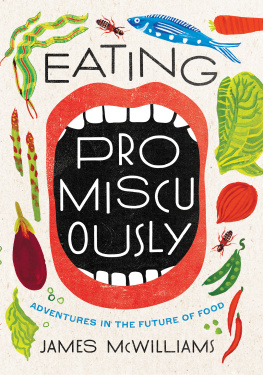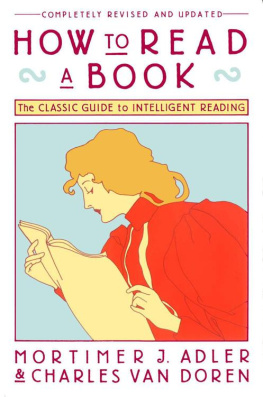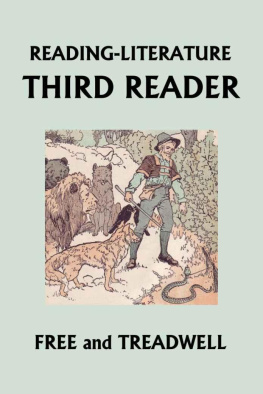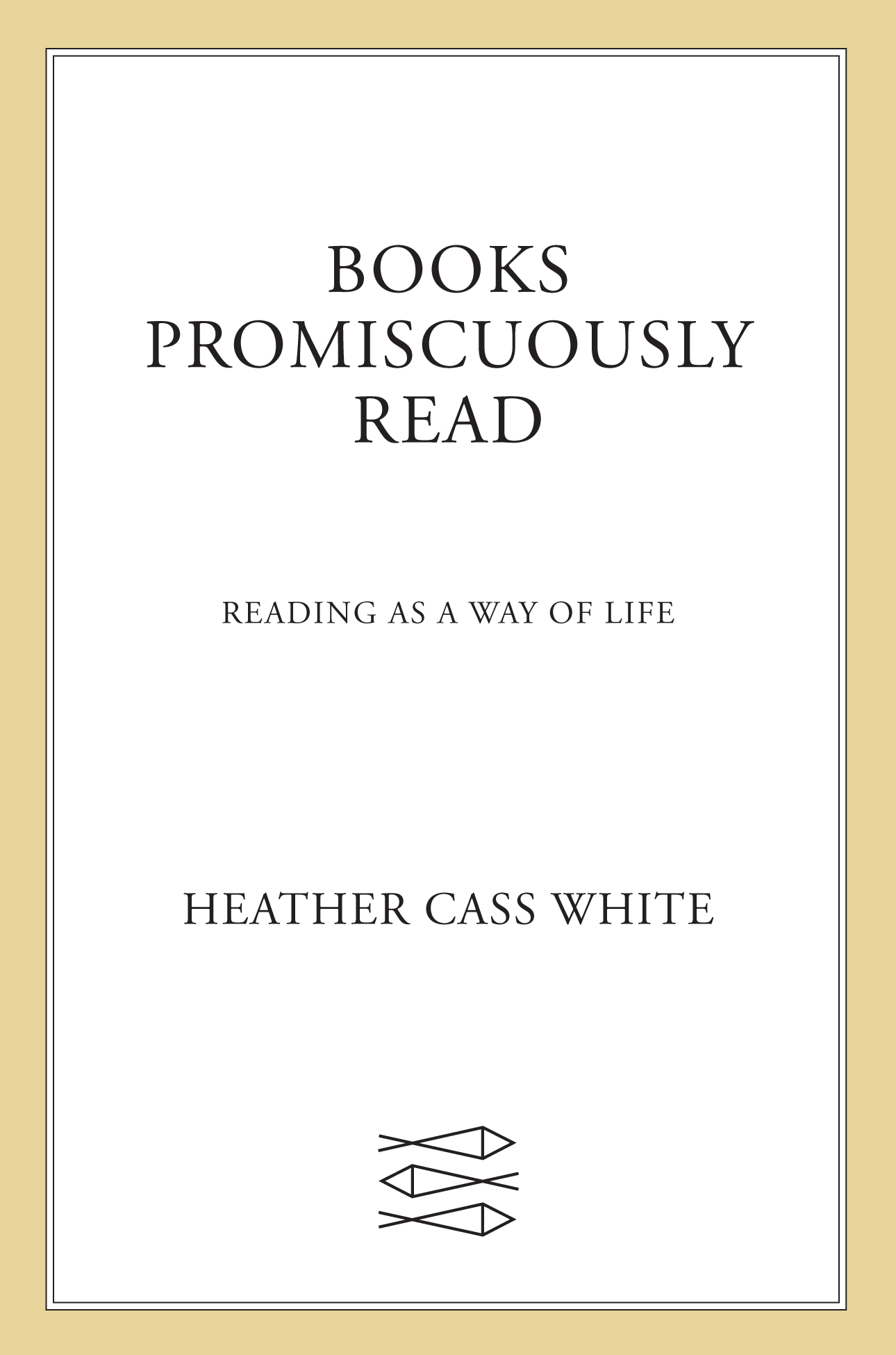Much of what readers think and say occurs in the words of others. In order to stay true to this experience of the readers mind, I have left most of this books quoted material unattributed in the main text. Complete references to all quotations will be found at the end.
1. Reading creates minds in its image.
A whole life, right alongside the rest of [a] life, can be lived inside books. A life spent reading affirms the feeling it also creates, that books have insides. A book is a commodity inclusive / of the idea, the art object, the exact spot in which to live. We shelter there, or cower, or delight, or rage; we dream with our eyes open, separate and alone and yet intimately connected, mind-wired to distant things, driving to the interior, from which we emerge changed, healed, charged. Reading is individual, the repository of [ones] inner self-relation, and it is communal: into that single, immobile and solitary act, all the powers of the cult of the gods have migrated. These powers are thrilling and dangerous, a betrayal of the dominant order of things, and they are tender, our lives held precariously in the seeing / hands of others. It seems, in the last analysis, to have something to do with our self-preservation.
2. Readers should read.
Reading is one portal among many to rich inner experience. It is one mode among many of living the life that one has, astonishingly and against all odds, been given. Not everyone has to be a reader. If reading is what William James called a living option in ones life, however, if it is a possibility felt to be open to any extent, then it is good to do it with ones whole attention, while also asking nothing in particular of it, or of ones self, while doing it. Reading in this way is doing something, not failing to do something else. It can be surprisingly hard to hold on to this truth, however powerfully we experience it.
3. A reader should read every day.
People who like to read should do more of it. The reasons not to do it are endless, and people who think of themselves as book lovers, who have the wherewithal to choose how they use their time, are often the most in thrall to them. Reading is time-consuming and requires focus. One has to sit down to do it, in a quiet place. Too many people actually do lack the essential conditions for reading: time and silence. These are scarce resources. For the many other people who have these advantages, however, and for the smaller number who would call themselves readers, and who yet do not actually read in any sustained way, much of what looks like external pressure is actually the mask of an internal reluctance. Reading without purpose is playful, and play is not easy for adults. It induces a perfectly useless concentration that will not make the reader seem or feel productive. There are no prizes for reading, no pay raises for it, no competitive advantage in it. It accomplishes nothing.
All reading has to offer is a particular, irreplaceable internal experience. Readers should keep faith that that experience is enough. We should fight for it, especially if the fight is against our own sense of obligation to the world. Reading is an activity, a doing something, that takes place in D. W. Winnicotts potential space, a region neither inside nor outside the self, but a paradoxical place that is both. It is an adult form of the dreamy, abstracted play of children that happens in an area that cannot be easily left, nor can it easily admit intrusions. We go there because we have a self that must be articulated, and because we do not have a self until we find its articulation. We think and are thought, dream and are dreamed by what we read. The actual world does shear away, says C. D. Wright. The reader is there for the duration, and leaves with reluctance.
4. We read elsewhere.
Reading as I mean it here has one distinctive feature: in doing it the reader steps aside from the actual world. That step can be characterized in a number of waysas escape, transcendence, respite, rejection, subversion, suspension, or otherwise. All of these terms will describe a single readers experience of reading over time, often simultaneously. What matters is the readers recognition that she is stepping aside, and her commitment to following whatever path that step reveals. No one can tell another person with certainty what kind of book will allow her to wander in this way. Thoreau prescribes books we have to stand on tiptoe to read. Jane Hirshfield says only words that enlarge the realm of the possible merit borrowing our attention from the world of the actual and the living. Each reader finds a personal canon of such challenging and enlarging books and spends a lifetime, if he or she is lucky, revising it. No two canons will be the same, but in the shared experience of encountering language (at least some of the time) at the edges of our capacity to understand, and feeling (with whatever initial balance of guilt and excitement) that we have withdrawn for a while from the worlds claims on us, we are reading.
5. Why not be alone together?
Imagine that in reading you take part in communitas: a spontaneous gathering of persons who identify themselves and one another as members of a unified body [that] evolves out of the desire of its participants to get to the bottom of the very mystery that brings them together. In its collective sense this is the participatory corps required to keep reading alive as a form of experience. Imagine that somewhere a wheel turns and continues to turn only so long as people are reading. The complementary term to communitas is civitas, an institution dependent on rulers to protect its integrity and authorities to guide its beliefs. We consent to live in a given civitas, however mixed our feelings may be about the terms and conditions our participation entails. We also participate in communitas, as expressed in a potentially infinite number of spontaneously formed and dissolved communities of interest and inquiry. The lines between our civil and communal lives are not clearly drawn, and the lines as we feel them in our own lives may look entirely different to others. While expressions of communitas are notoriously subject to co-optation by the rulers of civitas for their own ends, no civitas, however enlightened, can answer the questions that drive communitas. Reading is a way to keep asking vital questions in the company of others.
6. Reading will not save us.
By its nature communitas, including its expression as people who read, promises nothing, least of all a better self or world. Reading may have benefits (we hear often about a heightened sense of empathy, an alertness to logic and nuance, and a lengthened attention span) but is not a


